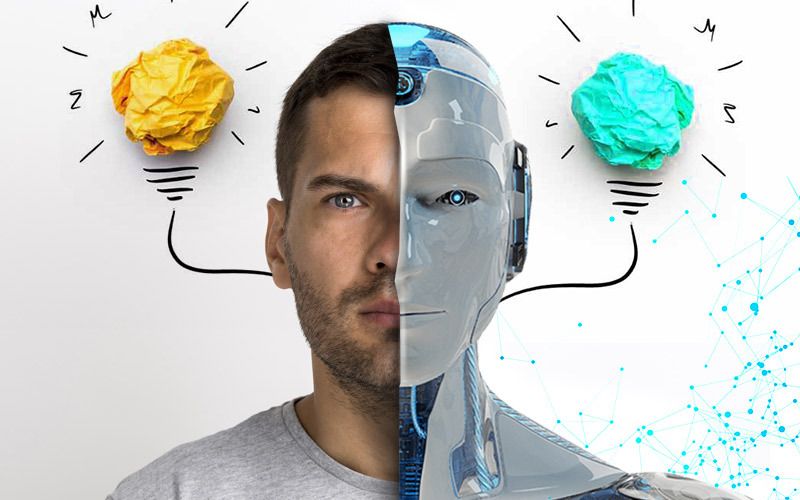The Rise of AI: Job Automation in the Future
In recent years, the rapid advancement of Artificial Intelligence (AI) has sparked discussions and concerns about its impact on the job market. AI technology, with its ability to analyze vast amounts of data, learn from patterns, and perform complex tasks, is undoubtedly transforming industries across the globe. This blog explores the potential ramifications of AI on the job market, delving into the ways it is already taking over certain roles and the implications it may have for the future of work.
AI in Manufacturing and Automation :
One sector where AI has already made significant strides is manufacturing. With the development of sophisticated robotic systems and machine learning algorithms, AI is taking over repetitive and mundane tasks on the assembly line. These intelligent machines can perform tasks with precision, speed, and efficiency, surpassing human capabilities. As a result, some jobs traditionally performed by humans, such as packaging, sorting, and quality control, are being replaced by AI-powered systems. While this automation improves productivity and reduces costs for businesses, it raises concerns about job displacement and the need for reskilling the workforce.AI in Transportation and Delivery Services :
Another area witnessing the impact of AI is transportation and delivery services. Self-driving vehicles powered by AI algorithms are becoming more prevalent, threatening the jobs of truck drivers, taxi drivers, and delivery personnel. Autonomous vehicles have the potential to improve road safety, reduce traffic congestion, and enhance efficiency. However, this technological shift may lead to a significant disruption in the job market, affecting millions of individuals worldwide. Policymakers and businesses must anticipate these changes and prepare strategies to retrain and redeploy workers to other areas of the economy.AI in Customer Service and Support :
The rise of AI chatbots and virtual assistants has transformed the way customer service and support are handled. AI-powered systems can now handle basic inquiries, provide relevant information, and even simulate human-like conversations. This automation allows businesses to offer 24/7 support and streamline customer interactions. However, it also threatens the jobs of customer service representatives who handle routine queries. The challenge lies in striking a balance between automation and human interaction, ensuring that AI enhances customer experiences without completely replacing human touchpoints.AI in Healthcare and Diagnostics :
The healthcare sector is not immune to the impact of AI. In diagnostic imaging, AI algorithms have shown promising results in accurately detecting abnormalities, assisting radiologists in their diagnoses. This development can improve efficiency, reduce errors, and ultimately save lives. However, as AI algorithms become more sophisticated, there is a possibility that certain tasks traditionally performed by healthcare professionals, such as image interpretation, could be automated. This evolution raises questions about the future role of doctors and radiologists and the need for upskilling to adapt to this changing landscape.The rise of AI and its potential to take over jobs in various industries cannot be ignored. While AI offers immense opportunities for increased efficiency, productivity, and innovation, it also presents challenges for individuals whose livelihoods may be at risk. The future of work lies in embracing AI as a tool for augmentation rather than outright replacement. Policymakers, businesses, and educational institutions must collaborate to create a framework that ensures a smooth transition, promotes reskilling and upskilling initiatives, and explores new opportunities in emerging fields. By doing so, we can harness the power of AI to shape a future where humans and machines work together harmoniously.
Is it true that AI will replace most of the jobs in future?
The potential for AI to replace jobs in the future is a subject of debate among experts and scholars. While AI has the capacity to automate certain tasks and roles, it is important to consider the broader context and potential outcomes. Here are a few points to consider:Automation of Tasks:
AI has the capability to automate routine and repetitive tasks, leading to increased efficiency and productivity. This could result in the transformation of certain job roles or the elimination of specific tasks within jobs. However, it is essential to recognize that automation often creates new job opportunities as well, as it frees up human workers to focus on more complex and creative tasks.Job Transformation and Creation:
Rather than completely replacing jobs, AI is more likely to transform existing roles by augmenting human capabilities. AI systems can assist professionals in decision-making, data analysis, and information processing, leading to improved outcomes. Additionally, the development and implementation of AI technology itself create new job opportunities in fields such as AI research, data science, and programming.Adaptability and Human Skills:
Certain jobs that require social intelligence, emotional connection, creativity, and critical thinking are less likely to be fully replaced by AI. Human skills, such as empathy, intuition, and complex problem-solving, remain valuable and difficult to replicate in machines. As AI evolves, it is important for individuals to focus on developing and enhancing these uniquely human skills to remain competitive in the job market.Job Market Shifts:
While AI may lead to the displacement of certain jobs, it also has the potential to generate new industries and occupations. Historical examples, such as the Industrial Revolution, show that while certain jobs became obsolete, new industries and jobs emerged over time. Adapting to these shifts requires proactive efforts in education, training, and reskilling to ensure workers are equipped for the changing job market.In conclusion, while AI has the potential to impact the job market, it is unlikely to completely replace most jobs in the future. The key lies in understanding how AI can augment human capabilities, creating new opportunities and transforming job roles. To navigate this evolving landscape successfully, it is crucial for individuals, businesses, and policymakers to anticipate and adapt to the changing dynamics of the job market.
Hence Allegiance Educare Career Assessment Tests have also implemented Face recognition AI in personality tests to make career counselling even more effective.
Click here to take a look at the demo.
_SFBDm.jpg)
_0qADA.png)

Leave a Comment
To post comment, please